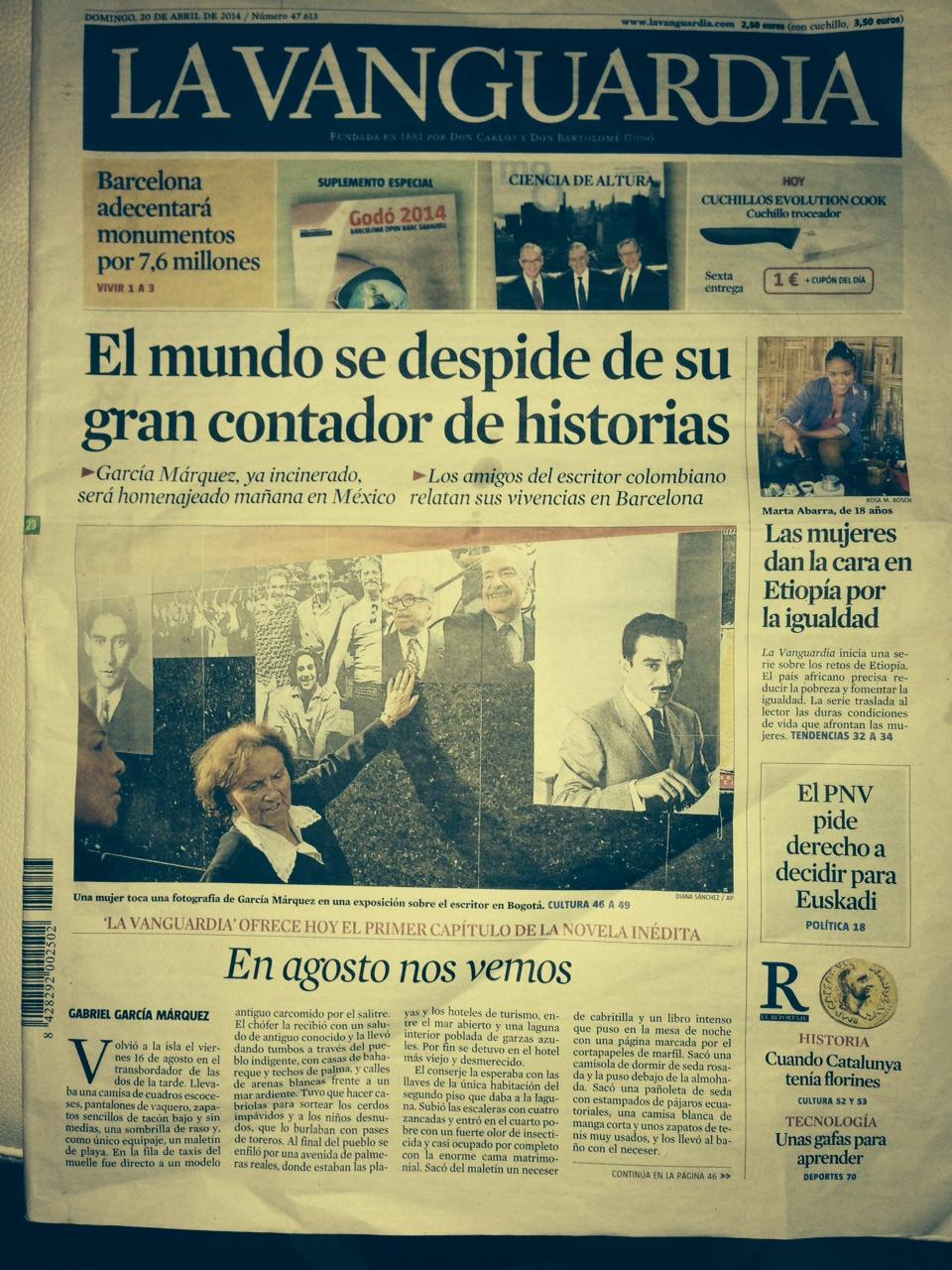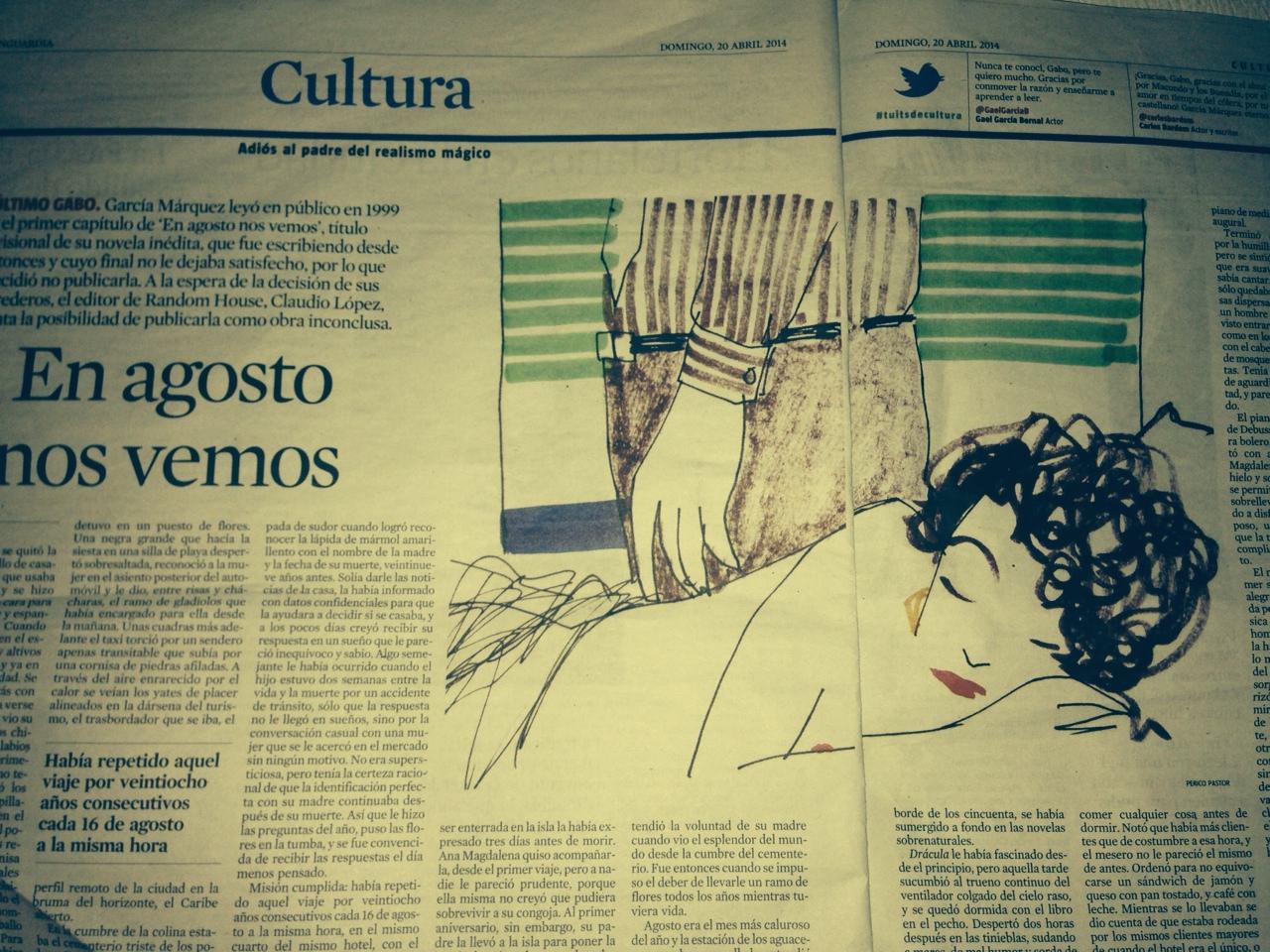

The first chapter of a newly found Gabriel Garcia Marquez novel found its way to Page One of La Vanguardia
I maintain that an editor can surprise the reader on the front page of a printed newspaper. And how! In this case, La Vanguardia does what newspapers did often in the 19th Century, particularly in the Spanish-speaking world—to bring literature to their pages.
Take, for example, the Sunday, April 20, edition of La Vanguardia. It was the week that Nobel Laureate Gabriel Garcia Marquez' memorial services had taken place, a final farewell for that genius and father of magical realism, the man who gave us One Hundred Years of Solitude.
For La Vanguardia's editors that occasion was the “news peg” they needed (not that one is necessary) to make it an “all Gabo” front page, including the start of the first chapter of a Garcia Marquez novel never published.
Indeed, right there on Page One, the first chapter of En Agosto Nos Vemos (See you in August), and one that Gabo read publicly in 1999, and which he continued to write but which was never published. Apparently Gabo was never satisfied with its ending. Now, Random House now considers publishing it an an unedited work.
The magic of Gabo
How I wish I could get my hands on the rest of this novel after reading that first chapter which introduces us to Ana Magdalena Bach, a 50-something woman, who makes a yearly pilmigrage to the same city, always on the16th of August, to visit the cemetery where her mother is buried.
Except that in this visit, Ana Magdalena decides to do what she has never done before. The upright, conservative Ana Magdalena decides to become a seductress.
The language of Garcia Marquez is as exquisite as ever here, making us forget that we read three Gabo-length paragraphs (that is extremely long) before he even tells us the name of his heroine.
While I am not a professional translator, I have tried to introduce these passages from the first chapter of En Agosto Nos Vemos:
“…finally she stopped at the oldest and least deserving hotel…”
“at the top of the hill was sad cemetery of the poor…”
“She had repeated that same journey for 28 consecutive years each August 16, at the same hour and in the same hotel room, riding in the same taxi and seeing the same florist under the same furious sun of the same indigent cemetery to put a bunch of fresh gladioli on her mother's grave…”
“She devoured him for her, without thinking of him, until they both ended exhausted, in a bouillon of sweat.”
Keep those surprises on Page One
While the printed newspaper may have lost the time advantage for breaking news, which we consume via digital platforms, it definitely still has every possibility to surprise us with timeless content, as La Vanguardia demonstrated here.
And as for how to present En Agosto nos Vemos via digital platforms: wonder if that public reading that Gabo did of his never published novel in 1999 is still available?
The New York Times: also a Garcia Marquez surprise on Page One
We have said it repeatedly: the printed newspaper has lost the time advantage, but it retains the ability to surprise us. A recent internal discussion at The New York Times proves the point.